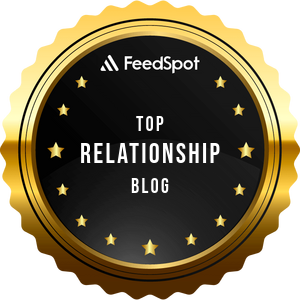
Relationships can be difficult to navigate. There is a great deal of passionate emotion stirring around our souls when our relationships are not sailing along smoothly. Relationships in recovery are even more tricky. Not only is the relationship often in stormy seas, but it's also as if the person in recovery is steering two ships—that of their recovery, and that of their relationship.
By using a few navigational tools for our relationships we can ensure all the people in our lives are on the same boat and steering toward the same goal: peaceful, loving, joyful and clean-living relationships.
We can first start by applying the familiar recovery saying "one day at a time" to our relationships. This means looking at each other in a fresh, new way. And it involves some re-training of our brain because we tend to be "wired" by experiences we have in life, mostly when we are growing up, and especially through traumatic experiences.
If I had a traumatic experience of a dog knocking me down when I was three years old, I will still have some wiring in my brain that reacts when I see a dog today, dozens of years later. My "thinking" brain may be able to overcome that wiring with thoughts like "I'm safe, the dog is not going to hurt me, it's on a leash." But the old brain wiring still creates a reaction, and I can feel the adrenaline course through me when I see a dog.
Likewise, our relationships are scattered with little traumas; many of which don't sound traumatic, but to the brain, it's as if our very survival is threatened when the person we love and hope loves us back is critical toward us (trauma!), doesn't respond when we ask a question (trauma!), looks at us the wrong way (trauma!), teases us (trauma!) or ignores us when we come home (trauma!). See, these things don't sound very traumatic, do they?
But, our brain just wants to be loved and to have our love accepted, and when this doesn't happen we feel scared. And, we begin to make a fearful pattern in our brain associated with that person. So each time we see this person, we are a bit afraid of what might happen, and we may act out in some defensive ways that protect us.
The good news is the brain is amazingly resilient and capable of growing new neuro-pathways with different thoughts and novel experiences. It takes practice, just like recovery—being consistent with meetings, thinking positive thoughts about yourself, avoiding triggers, working your program.
Many people new to recovery expect those around them to accept their clean lifestyle and to be excited for them only to discover lingering doubts, lack of trust, and skepticism from their loved ones. You long for people to see you as you are right now. Clean. Sober. Free. Working hard. You feel invalidated and shamed when they bring up past behaviors from your using days, and you cry out for others to see how far you've come.
What's happening is that the wiring in their brains attached to you includes all those old behaviors of yours when you were using. And they are a bit afraid, rightfully so.
Here are some suggestions as your work through your triggers:
-
Have a dialogue with your loved ones about the importance of your recovery program, the details of what you are doing, and explain how recovery works.
-
Admit that your recovery has upset the ship by shifting the system your family and your relationships were accustomed to.
-
Ask your loved ones to join with you and give them specific actions they can do: attend CODA or Al-Anon meetings to learn more and help hold you accountable in loving ways. Ask them to see you as you are today—and promise to do the same for them.
We need to look at each other anew without all the old baggage attached, letting go of old hurts and disappointments, dropping expectations and entitlement. We need to look at each other as if this is a new day, a new person we are interacting with. Because it is.
You are not the same person you were yesterday, and each day brings new possibilities. Your partner is not the same person he or she was yesterday either. If you continue to hold onto the brain pattern attached to them that brings up fear, you will not allow them to grow.
This requires some self-work, reminding yourself and your brain that this is now. Here. Present time. What is it you are seeing? Hearing? Feeling? Who is this person sitting across from you? Become interested and curious about how the day's activities may have changed them. What new thoughts did they have today? What made them smile today?
Try these tips:
-
Get on the same ship by sitting down and having a dialogue about your vision for your relationship.
-
Write it out in present tense (e.g., We meditate for 10 minutes each day. We treat each other with respect. We attend meetings together.).
-
Post it somewhere easily viewed each day.
-
Then commit to steering your ship together.
Recovery is said to be individual—we can only work our own program. And yet we live in a relationship, and we recover in relationship—groups, meetings, therapy. The world is in a relational paradigm: A-Relation-Ship.
If you're struggling with healthy relationships while in recovery, we're here to help. Check out our workshops and therapy!

This blog post was written by Lori Karch, LCSW
Lori Karch is an Advanced Certified Imago Relationship Therapist, Workshop Presenter, and Consultant who has been in private practice in Indianapolis, Indiana, since 2004.
Lori works mainly with couples and those looking to improve their relationships. She leads the popular Getting The Love You Want Weekend Couples Workshop as well as the Keeping The Love You Find Weekend Singles Workshop.
Her passion and enthusiasm for working with couples stems from her personal experience in finally getting it right in her own relationship. She wants all couples to experience the relationship of their dreams! For 19 years, Lori and her partner have truly enjoyed each other and their relationship. Imago relationships work!



